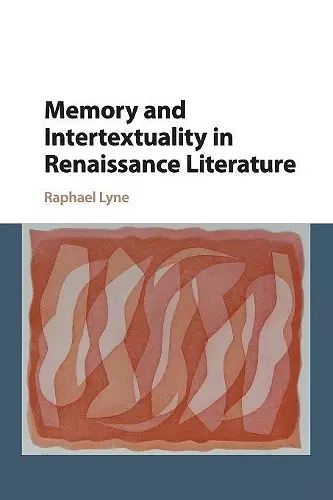Memory and Intertextuality in Renaissance Literature
Format:Paperback
Publisher:Cambridge University Press
Published:24th Jan '19
Currently unavailable, and unfortunately no date known when it will be back
This paperback is available in another edition too:
- Hardback£94.00was £94.00(9781107083448)

This book uses theories of memory from psychology and cognitive science to give a new account of intertextuality, focusing on the ways in which poems and plays remember their sources. Offering new insights into major early modern works, it will interest researchers of Renaissance literature and drama, Shakespeare studies, memory studies, and classical reception.This book uses theories of memory derived from cognitive science to offer new ways of understanding how literary works remember other literary works. Using terms derived from psychology – implicit and explicit memory, interference and forgetting – Raphael Lyne shows how works by Renaissance writers such as Wyatt, Shakespeare, Jonson, and Milton interact with their sources. The poems and plays in question are themselves sources of insight into the workings of memory, sharing and anticipating some scientific categories in the process of their thinking. Lyne proposes a way forward for cognitive approaches to literature, in which both experiments and texts are valued as contributors to interdisciplinary questions. His book will interest researchers and upper-level students of renaissance literature and drama, Shakespeare studies, memory studies, and classical reception.
'Lyne approaches memory as an elastic metaphor. Early modern memory culture adheres to no single model of memory; neither does Lyne's argument … by directly addressing specific sets of questions in cognitive science, Lyne provides a robust and humanistic response, an intertext as it were, to ongoing social-scientific research in memory … in terms of its contribution to literary theory, this is the strongest work on early modern memory that I have read.' Lina Perkins Wilder, Connecticut College
ISBN: 9781107443907
Dimensions: 230mm x 150mm x 15mm
Weight: 400g
272 pages